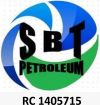About the Course
This course addresses the fundamentals of the Petroleum System, a holistic view of how it works, which is essential for geoscientists and engineers involved in today’s challenging conventional and unconventional exploration and development projects. The elements of the Petroleum System Charge, Trap, and Reservoir, are described systematically within the framework of play and prospect evaluation.
The charge element begins with the deposition of the source rock and the establishment of its volumetric potential, or feedstock, for the system. Charge access involves converting this potential to expelled volumes, making, and then moving, the volumes from source bed to trap/reservoir. In the case of some unconventional reservoirs, this is within or adjacent to the source bed itself. A trap receives charge and petroleum columns build along its edges, until the container limit of the critical weak point is reached, or it spills. Reservoir rock storage and deliverability are modified by mechanical and chemical compaction, and fluid properties, fundamentally affecting project economics. Fluid properties further impact economics via the product value itself.
Course Objectives
- Employ Petroleum System concepts as a holistic approach to risk and volume estimation in play, prospect and reservoir evaluation
- Predict and confirm source rock distribution from rock and fluid data, and estimate volumetric potential
- Predict the temperature, timing, volumes, compositions and phases expelled from kitchens, and the controls exerted by hydrodynamics and capillarity on migration from source bed to trap/reservoir
- Describe a trap in terms of the critical weak points on its edges
- Estimate column heights containable by those edges
- Understand the Petroleum System controls on reservoir rock quality
- Understand reservoir and reservoir fluid properties that govern deliverability, well recovery, and economics (rate, product value)
Course Content
- Petroleum Systems in E&P
- Charge | Source Potential: source rock deposition
- Charge | Source Potential: type and organofacies
- Charge | Access: temperature and thermal stress, thermal stress indicators and maturity
- Charge | Access: petroleum generation, cracking and expulsion; petroleum product composition and phase
- Charge | Access: oil and gas geochemistry (biomarkers, isotopes) as a function of organofacies, maturity and biodegradation
- Charge | Access: basin thermics; thermal modeling; volume and timing of expelled products; fluid phase properties
- Charge | Access: capillarity; pressure; primary and secondary migration from source to trap; charge vs. trap timing
- Trap | Container Geometry: understand trap geometries that govern accumulation; container type and number of edges
- Trap | Column Capacity: fluid phase properties density and interfacial tension; rock capillarity; hydrodynamics; capillary vs. fracture leakage; column capacity prediction methods; tertiary migration/leakage and seepage
- Reservoir | Storage: effective stress and mechanical compaction; thermal stress and chemical compaction; how reservoir filling controls fluid phase saturation; fluid formation volume factor and gas expansion factor; geochemical methods of estimating fluid phase saturation
- Reservoir | Deliverability: P, T and compositional controls on fluid viscosity; segmentation; reservoir pressures and connectivity
- Value: the $ value of the produced petroleum product itself
Who should attend?
Geologists, geophycists, and petrophycists working on a basin, play, prospect or reservoir evaluation, and reservoir engineers seeking a bottom up understanding of the genesis of their reservoir or field.
5 Days
Course Fees (VAT Included)
Lagos/PH/Abuja: ₦ 430,000.00
UK/US/Ghana/Others: $ 4,300.00
- Award of Certificate.
- Professional Training Materials
REGISTRATION PROCEDURE
- Go to “Register Now” button and fill the form and send it. You will get “message sent” if it is successful.
- You will get confirmation of your registration within two working days when you will be asked to go ahead and make payment.
- Go ahead and make payment.
- Send your name, phone number, email address, training location, amount paid to info@sbtpetroleum.com.ng OR SMS to +2349098171437.
- Upon confirmation of your payment, an electronic receipt will be sent to your mail.
- A joining instruction will be sent to you at least 72 hours before the training date an time.
- Looking forward to training date to commence your training. However, if a need to change the dates of the training arises, you will be notified immediately. This may be due to unavailability of the instructors or due to unavoidable logistic challenges.
ACCOUNT DETAILS
NAIRA ACCOUNT
BANK: ECOBANK
ACCOUNT NAME: SBT PETROLEUM GEOSCIENCE LIMITED
ACCOUNT NUMBER: 1613062169
BRANCH: Chevron Branch
SORT CODE: 050150340
DOLLAR ACCOUNT
BANK: ECOBANK
ACCOUNT NAME: SBT PETROLEUM GEOSCIENCE LIMITED
ACCOUNT NUMBER: 1613062183
BRANCH: Chevron Branch
SORT CODE: 050150340
